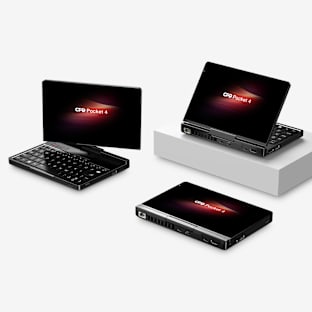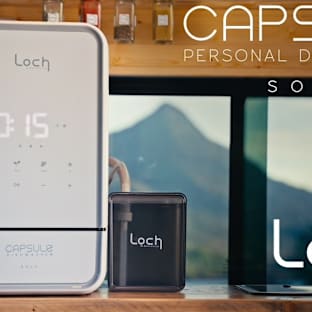![]()
YABA Solution
![]()
YABA is the innovative Open Hardware controller platform designed to offer a simple but robust approach to modern industrial automation and IoT. If you are enthusiastic about development for Raspberry, Nvidia CUDA, Google Coral, Arduino, Micro Pic, STM Nucleo.....YABA is the ideal platform for you.
YABA works as a PAC/PLC or, better, as an Edge Computer/IoT Gateway where high performance CPUs, programmable trough high level languages, control expansion modules interfacing with the real world.
![]()
The innovation characterizing YABA is the choice of a bus type that offers simplicity, reliability, wide usage, availability of support and last but not least performance: USB
With the latest versions (3.1) the USB bus guarantees all the above characteristics. The “alternative mode” allows the use of additional lanes for different protocols and on YABA we use them for high-speed LVDS buses (such as EtherCAT M- BUS) and I2C bus.
All sounds good...but why is YABA really innovative and what are its unique advantages?
An Open Source industrial grade modular hardware, giving the opportunity to everyone to freely develop hardware and software. No closed protocols or electric diagrams. Full access to all the documentation. Support, assistance in obtaining additional certifications, help in commercializing own products all this via the
YABA community. And finally an industrial product with a sleek design.
YABA is all of this and more!
A precious platform for developers wishing to approach a sector that now is mostly off-limits because of the costs involved in licences, royalties, development environments, etc.
A robust teaching platform to start familiarizing with concepts and languages of industrial automation.
Last but not least, a cool looking device for your house automation needs.
![]()
About YABA SlimBox
![]()
The SlimBox measure 200 x 50 x 100 mm.
It is a compact form factor that can accommodate a larger touch screen, that make it also easy to use as an operator panel,
This form factor is also usefull for hand-held battery powered systems like test instruments, on field data entry, etc. and offers a cutting edge design perfect for home applications.
What will I get?
If you decide to fund us you will receive a fully working production model of YABA SlimBox with:
- One YABA SlimBox with backplane for 1 CPU-slot and 1 Device-Slot,
- One CPU board based on Raspberry Pi CM3+ (RPi CM3+ and 8GB MicroSSD included)
- One I/O Device board with 16 input/output digital & analog
SlimBox specifications:
![]()
![]()
About YABA CubeBox
![]()
The SlimBox measure 100 x 100 x 100 mm.
The CubeBox reduced dimensions are ideal for small systems where space is a constraint. With its sleek look the CubeBox is the perfect choice for home applications, where style is a very important factor. Thanks to its compact size, the CubeBox can fit very easily in a suitcase or in a rag-sack, making it very easy to transport everywhere.
What will I get?
If you decide to fund us you will receive a fully working production model of YABA SlimBox with:
- One YABA CubeBox with backplane for 1 CPU-slot and 1 Device-Slot,
- One CPU board based on Raspberry Pi CM3+ (RPi CM3+ and 8GB MicroSSD included)
- One I/O Device board with 16 input/output digital & analog
SlimBox specifications:
![]()
![]()
About YABA DesktopBox
![]()
The DesktopBox measure 200 x 100 x 100 mm. It is the ideal development kit for both professionals and amateurs who wants to start familiarizing and experimenting with the platform. It is suitable for medium size system implementations. It can also be used as an operator panel (with additional LCD).
What will I get?
If you decide to fund us you will receive a fully working production model of YABA Desktop Box with :
- One backplane with 1 CPU-slot and 6 Device-Slot,
- One CPU board baed on Raspberry Pi CM3+
- One I/O Device board with 16 input/output digital & analog
Desktop Box specifications:
![]()
![]()
About YABA Common parts
![]()
![]()
![]()
Additional YABA Form Factors
![]()
Following the first release of the box, further crowdfunding campaigns will be launched to make YABA available in another 5 form factors.
Check our website to find out more
![]()
Architecture
YABA offers the freedom of using, also simultaneously, 3 different buses characterized by high performance, flexibility and low cost:
USB: in the course of the last 20 years, USB bus has evolved from a system designed to temporarily connect external devices (typically with a relatively slow connection speed) to a transport interface that today can easily compete with the fastest system buses.
EtherCAT (or other LVDS based bus): this bus offers performance among the best between today’s available industrial buses, while keeping low development costs.
I2C/SMBUS: has always been the protocol of choice for easy interfacing between different devices.
Developers have the option of using just one, two or all the 3 available buses simultaneously.
Check out our website to find out more
![]()
Open Source Hardware
![]()
Not be considered an innovation but a must-have. Nothing will obviously prevent third parties to develop CPU or expansion boards as proprietary products. Still the platform architecture and the communication bus will remain open standards.
![]()
Where Will The Money Go?
![]()
Currently our project funding allocation can be broken down as follow:
Complete the prototype - 20,000 Eur
- Finalize prototype requirements including backers suggestions
- Laboratory test of the bus high speed performance
- Build a stable prototype
- Required tests for CE e UL certifications
- Creation of 3D models for injection molding
- Finalize and test software drivers for I/O boards
- Packaging & design
From Prototype to commercial product - 70,000 Eur for 300pz
- Purchase of PCBs (15,000 Eur)
- Purchase of electronic components (25,000 Eur)
- Assembly of boards (15,000 Eur)
- Printing of cases (10,000 Eur)
- Assembly and product packaging (5,000 Eur)
Shipping cost – 10,000 Eur
We are well aware that hidden costs can always come up, and we have accounted for them using a buffer of 10% on the funding goal.
![]()
1. Stretch Goal - 160,000 Eur
MarketSpace
![]()
We believe that the developement of a YABA community, although not strictly necessary for the platform itself to work,it is crucial to the project as it facilitates ideas and knowledge sharing.
Our dream is that YABA could grow and evolve also without our direct input. This is at base of the Open Source: someone give the initial start but is the community that grows and bring the idea to maturity.
The portal will be developed in steps, starting with base functionalities like Forum, Wiki and document repository and ending with products catalogs and offers/requests for products and services.
![]()
2. Stretch Goal - 200,000 Eur
Additional Certifications
On the top of the standard UL and CE certifications, hitting the second stretch goal will allow us to acquire the USB® e EtherCAT® logos.
- Renting of equipment and laboratory for testing (20,000 Eur)
- Document submission and certification process (20.000)
These additional certifications will be pursued only after the release of the first YABA model, the DesktopBox, and after the MarketSpace. We decided to exclude the cost of these certifications from the main goal to have a lower target and get the project started.
![]()
Risks & Challenges
![]()
Bringing to the market a brand new product has never been an easy process. We focused on identifying critical aspects that YABA evolution will inevitably face:
-
Penetrate the market sector: the main challenge is to make YABA understood and appreciated in a sector traditionally very conservative and suspicious of new ideas. Still, we trust that today’s world is mature and forward-thinking enough to understand that staying entrenched can not guarantee any future, while on the other hand spreading knowledge and sharing ideas and experiences can only be a winning approach.
-
Overcoming a few technical hurdles: from a strictly technological point of view, YABA leverages on widely used systems, chips and methods. All these aspects are predictable and risk free.
Others, like adjusting the "lanes" of the PCB in order to guarantee performance at 5 Gb/s can represents a critical, anyway nothing that cannot be overcome trough a proper design software (of course Open Source). Also, high-level equipment (and attached cost) will be required. The rental of test and certification laboratories is precisely one of the reasons for which crowdfunding is mandatory.
-
Reach the masses: another critical issue could be YABA final retail price. It is true that a product with YABA characteristics and specifications does not necessarily have to be the cheapest on the market, however is also true that its price must not represent and obstacle to its popularity ion. Having a larger users base make possible to lower the production costs; the minimum number of units that can allow us to set a price below 300 Euro is 30 units. The more the YABA users base will grow, the more its production cost will be reduced, hopefully totally overcoming this challenge.
-
Guarantee continuity: considering the instability of the global scenario it is not to exclude that some CPUs might become unavailable at some point in the future. More than a real risk, this challenge highlight how YABA is a winning solution: its multi-platform nature allows to use any CPUs, including those that will become available in the near future. RISC-V looks like one of these.
![]()
Some History
![]()
Let me introduce myself. I am Giacomo Falcone and after my graduation in 1990, I worked for 5 years in Marconi-Ericsson as project leader in a team designing and implementing telecommunication systems.
In 1995 I founded STS SRL, a company operating in the industry automation, hardware and software development sectors.
During the past 30 years I have:
- engineered over a dozen microprocessors and FPGA boards;
- developed high voltage systems for x-rays measuring devices;
- designed and produced systems for the visual identification of defects in industrial production lines
- built several backplane based boards
- written over a million lines of C++ code (line less or line more)
In the course of my experience serving customers with different requirements, Iv’e found myself working with both expensive industrial controllers and low budget custom solutions. These last ones often resulted difficult to be adapted to the professional market and presented several limitations like flexibility, scalability and ease of testing.
From these experiences I came up with the idea of YABA: new product suitable for the professional sector but, at the same time, low cost and Open Source, both in the software and in the hardware.
The evolution of IoT, Inditrial IoT, Industry 4.0, AI, machine learning, environmental analysis, etc has broadened the filed of implementation of information technologies in the professional sector.
I strongly believe that times are now mature to introduce a low cost, Open Source alternative capable of satisfying the professional market requirements.
To keep things simple, I designed the first CPU board to use a Raspberry Pi. This doesn’t mean that YABA is limited to a specific platform: in the future I foresee boards based on Nvidia, Coral and RISC-V modules as well. The same is truth for I/O boards.
The slot-based modular system is using interchangeable boards and allows for different form factors, also including handheld devices.
Crowdfunding will play a key role not only in covering engineering, testing and backplane certification costs, but also to collect feedback and input for improvement.
We believe in fact that only trough crowdfunding a real open source platform can be created. Any other form of funding would by nature imply a return on investment, difficult to reconcile with the idea of “open”.
Our backers will not only receive a piece of hardware to test and experiment with, but will also have the opportunity to actively participating in the project, suggesting and developing their own ideas both on the hardware and on the software.
![]()
Meet The Team
![]()
![]()
Behind The Scenes
Introducing Giacomo, YABA Co-Founder and CTO
Meanwhile in YABA Laboratories






























































